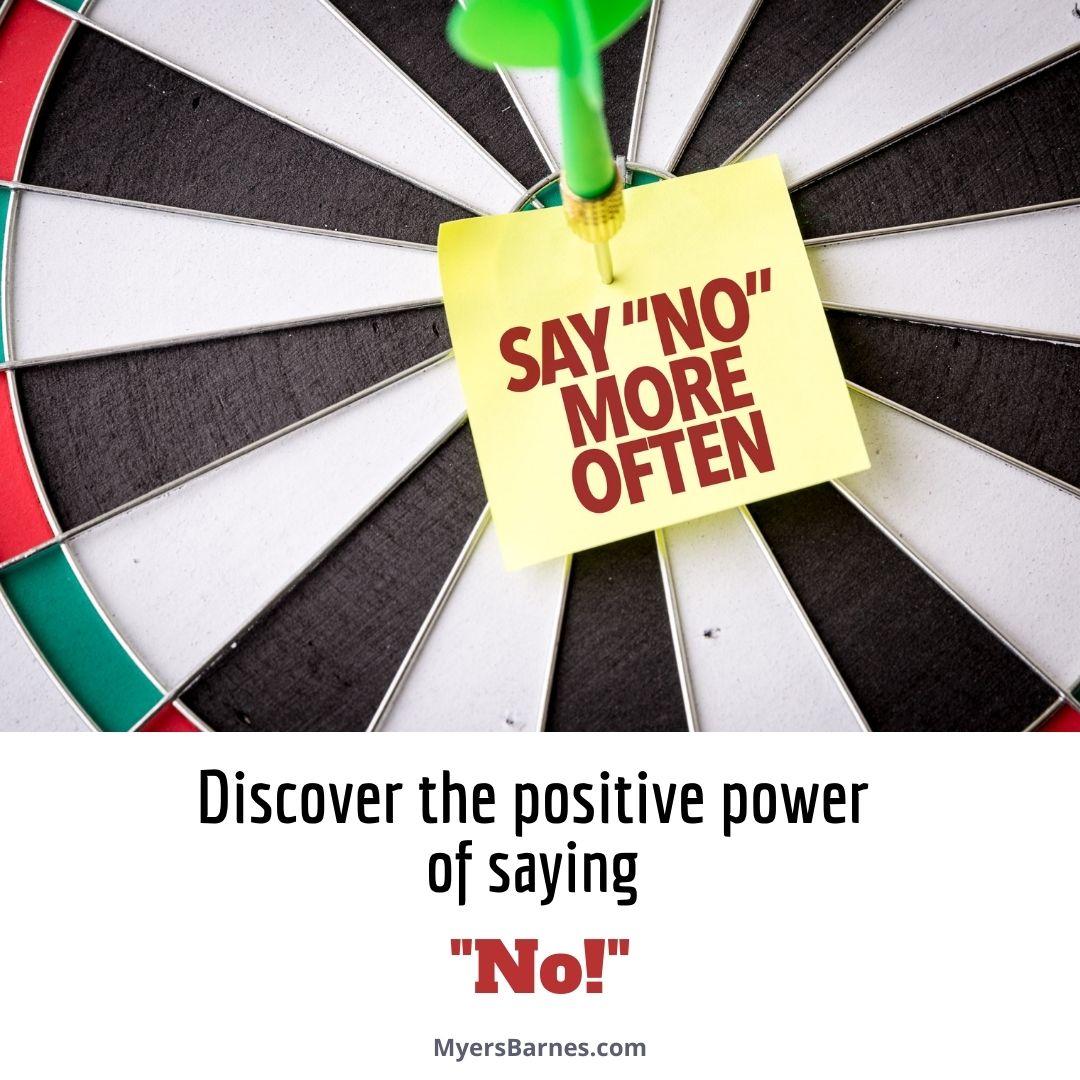 Hearing a “yes” in response to your question is often—but not always—invigorating. That doesn’t mean the opposite answer is a bad one. It’s all in your perspective. Time is a commodity and you need to protect it with the positive power of saying, “No!”
Hearing a “yes” in response to your question is often—but not always—invigorating. That doesn’t mean the opposite answer is a bad one. It’s all in your perspective. Time is a commodity and you need to protect it with the positive power of saying, “No!”
We’re busy people. Technology—which ironically is supposed to make our lives easier—has made us more available. Our friends, family, customers, co-workers, and bosses can get in touch with us at any hour of the day, no matter where we are. With that access comes requests. “Can you help me with something?” “Do you have time for a quick chat?” “Can I stop by in a few minutes?”
These are all harmless requests. They’re asking for your time—and this is where you need to be mindful. Your time is limited, so you need to use it wisely. Think of time as currency. Would you go around throwing money at anyone who asked? How long would your resources last? Before too long, all those people have scurried away with your wealth, leaving you with nothing for yourself. Your time is the same.
William Ury, author of “Getting to Yes: Negotiating Agreement Without Giving In”, wrote, “the main obstacle to getting to ‘Yes’ is learning how to say ‘No’ properly.”
Why is “No” so difficult to say?
We perceive the word “No” as negative, limiting, and off-putting. It’s a rejection. So, we say “Yes” when we shouldn’t. We agree to terms that aren’t reasonable. We commit our time to things that aren’t worthwhile.
Then what happens? We grudgingly go through with what we agreed to do. We kick ourselves, and moan about “what I should have said.” So, let’s put an end to that pain.
The words “Yes” and “No” don’t have to be mutually exclusive. The successful way to deliver a positive “No” is by finding a way to blend the negative response with a positive one. “No, but…” or “Yes, but…” provide a sturdy bridge.
- “I can certainly appreciate your needs here, and maybe we can find a different way to meet them that is more mutually agreeable.”
You acknowledge that the request is valid, while politely refusing the offer without ending the conversation. You don’t struggle with finding another option, but turn that responsibility back to the person asking for your time.
- “I’d like to do that for you, but right now, I can’t. Is there any flexibility in your timeline?”
You let the person know that you’re willing to help but not at this particular moment. You’re being agreeable and supportive without giving up your time when you shouldn’t spare it.
- “I wish I could help, but I’m tied up; however, I might know someone who can.”
With this response, both needs are met! You provide an alternative, by saying “Yes” to helping, but on a different level—offering another resource.
Say “Yes” to yourself
Stephen Covey, author of “The 7 Habits of Highly Effective People”, advises, “You have to decide what your highest priorities are and have the courage pleasantly, smilingly, and unapologetically to say ‘no’ to other things. And the way to do that is by having a bigger ‘yes’ burning inside.”
What is that “Yes” that deserves your time? Don’t push it aside because you have trouble turning down requests.
Someone once told me, “Every time you say ‘yes’ to someone else, you say ‘no’ to yourself.” Remind yourself of that. Respect the value of your time and hone the skill of delivering a positive “No”.


